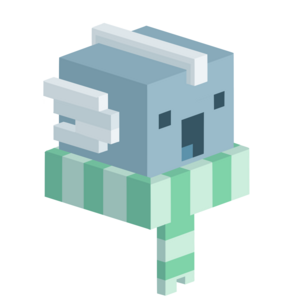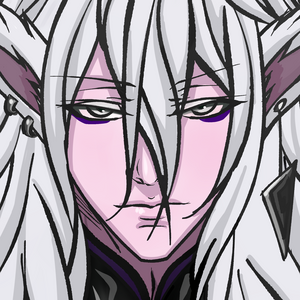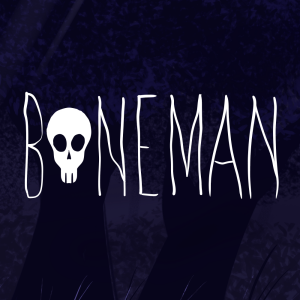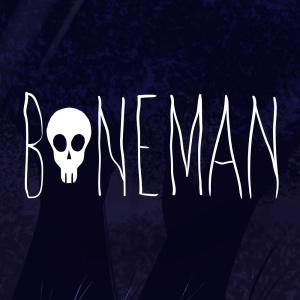Undeath comes with a number of surprises.
First is that he doesn’t need to rest. It makes sense, he supposes. He has no muscles to get tired. He doesn’t need to sleep either, as he realizes when the sun rises and he has to hide in the shade of a tree, shuffling around every few hours to stay out of the light.
Second is that animals don’t like him.
Not just wild animals, like small furry things that bolt when he passes nearby or carnivores that growl threateningly when he stumbles into their territory. On the dawn of the second day since leaving the cave he finds a farm in the middle of a grassy field and, eager for a roof over his head, sprints into the barn just as the morning light begins to sizzle his exposed arms and skull.
He’s just shut the door behind himself when a growling noise starts from somewhere behind him. Peering into the shadows, he spots a large gray barncat partially hidden behind a hay bale looking straight at him, sharp teeth bared and back arched to make itself look as big as possible.
Mordecai likes cats. He feels like he may have been good with cats, in life. He gets down on his knees and holds out his hand to it in a nonthreatening gesture, waiting for the cat to come to him.
And boy, does it come at him.
It takes ten minutes of screaming to draw the farmer to the barn to see what’s going on. Upon opening the door to find a skeleton desperately trying to run from a yowling, hissing cat, he shouts something—probably to do with undead monsters attacking, honestly Mordecai was a little distracted—and grabs the nearest thing he can find to use as a weapon.
A pitchfork.
Looking back, Mordecai sometimes wonders if one man and a cat counts as an angry mob. He managed to escape by picking up the cat and throwing it at the farmer, but as he ran through the field, sunlight burning him and the sound of a furious man and vicious feline following close behind, barely dodging a thrown pitchfork before ducking into the safety of the woods, it felt like a village was hunting him down.
But back to the present.
The third surprise that undeath brings is that monsters don’t bother him.
The two-foot-tall insects and shadowy imps that would have swarmed him when he had skin simply go about their business. At one point, as he’s standing under a tree waiting for the day to pass, a slimy blob rolls up to his boots and makes a sound like bubbles in mud. Curiously, he bends down and gives it a poke. The poke jiggles the cold goo that makes up the slime creature’s body and it makes another noise—sort of like a fart—that Mordecai interprets as delight, since it rolls around his feet seemingly asking for more.
He plays with it for a bit before it gets bored and rolls away into the brush.
After that, it’s like a whole new world opens up to him. The monsters of the night have little interest in him, but he takes interest in them, taking the time to study them as he never could have when he was alive. He watches giant insects pluck fallen tree fruits from the ground and carry them back to their nests, where larvae the size of his hand squirm and gorge on them. He watches some kind of land-fish crawl out of the water and pounce on a squirrel, killing it with strong jaws and swallowing it whole. He watches what he initially thought was some sort of fungus stand from its spot between the mossy roots of a dead tree and totter across the clearing.
With all the ferocity and bloodthirst stripped away, it’s easy to see them as animals; just another part of the ecosystem, performing an ugly but vital task for the planet’s wellbeing. Perhaps, he muses, the ferocity with which they attack humans is part of that task.
Then he thinks, Am I part of it too?
He immediately wipes that thought from his head. He’s been undead less than a week. He isn’t ready for that kind of existential rumination just yet.
Still he watches with rapt curiosity as the creatures go about their business, occasionally getting so distracted he wastes an entire night watching shadow monsters leap from the inky blackness of the night’s deepest shadows and pelt each other with sticks. It doesn’t really matter, though.
He has no idea where he’s going.
He wants answers, he supposes, about how he died and why he rose from the grave. But where would he even start? He’s regained some memories (he learned that monsters wouldn’t attack him by stumbling upon a huge insect colony, and there was a sudden moment of panic
he’s small, he has a sword but it’s so heavy, someone’s shouting encouragement at him but there are so many, they’re swarming him, the voice turns angry
and he’s frozen in fear for a minute before he realizes they’re not paying him any attention) but nothing to go off of. People are indistinct blurs, vague presences that refuse to define themselves to him, and places appear to him as if in a thick fog. Names are mumbled, garbled, and muffled all at once. It’s incredibly frustrating.
How can he figure out where to go when he has no idea where he’s been?
So he simply wanders during the nights, feeling so safe amongst the denizens of the dark that he doesn’t even flinch when a distant howl carries through the woods, too deep to be that of a normal wolf. He takes shelter in the shade by day, reading his book when he’s not watching the fascinating new side of nature he could never witness before. The book, he’s discovered, is the story of a pirate who built an empire upon the sea. There’s something enrapturing about it.
Mordecai wonders what it would be like, to build a new life for himself and just leave his questions with his forgotten past, only thinking of the future.
--
On the tenth day after leaving the cave, Mordecai looks up from the book when he hears angry shouting and heavy footfalls approaching. He just manages to pack the book back in his satchel and scramble out of sight before a mob of ten or so people march through the trees. The people are wielding an odd variety of weapons including guns, dinnerware, candlesticks, and in one person’s case, a necklace wielded like a garrote.
He peers through the bushes, listening intently to the mob’s muttered words. Why are they out here, he wonders. Was I spotted?
“Do you think it got away?” one of the candlestick-holders asks nervously.
“We can’t let that happen,” replies the gunman. “Either we kill it now or it kills us later.”
“We’ve lost the beast in the trees. We’ll have to double back and search for tracks,” another one pipes up.
Mordecai realizes with some relief that the mob isn’t looking for him. Just as he thinks this, a woman holding a platter turns her head in his direction. Her eyes widen, her jaw drops, and her hands tighten on the dish, knuckles turning white.
Oh right, Mordecai thinks to himself. Glowing undead eyes.
“There!” the woman screams, pointing. “Over there—I see its eyes!”
Mordecai doesn’t wait to hear the others’ response. He simply bolts.
Darting from shadow to shadow works well enough for a while, until the mob starts to catch up with him. The short moments when his bones are illuminated by the sun are beginning to add up and an ache starts to set in. He can’t keep this up.
He spots an old ramshackle cabin in his peripheral vision and makes a sharp right turn. He abandons the strategy of weaving around beams of light in favor of sprinting straight for shelter.
As he slams the door shut and slides the chain into place, he rests his hand on the hilt of his knife. He’s escaped the sunlight but trapped himself in the cabin. He can hear the mob approaching, surrounding the cabin. Dourly, he notes that this may well be his last stand.
He turns and finds himself face-to-face with a furious-looking woman holding a spear to his neck.
“You rotting moron,” she snarls, “you led them right to me!”












Comments (2)
See all